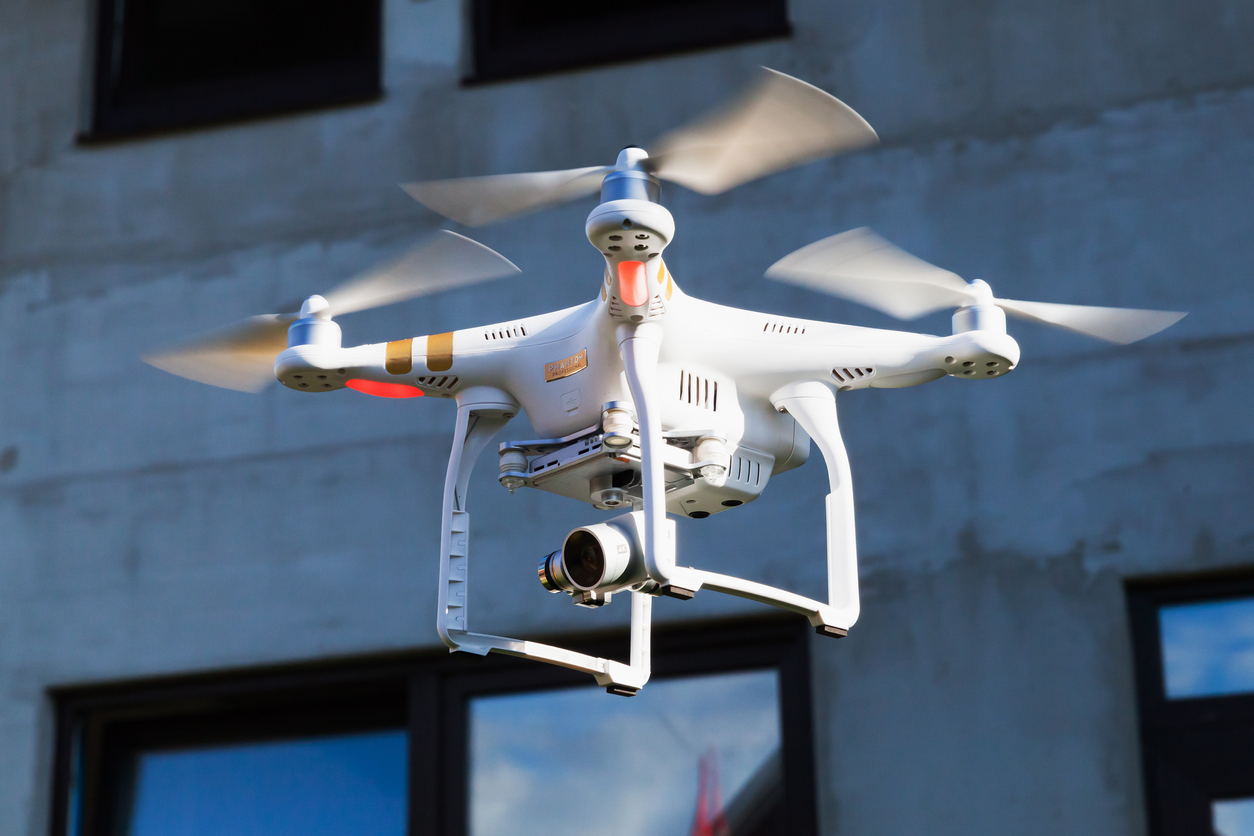
Telangana, ICMR to use drones for faster, safer delivery of vaccines
The Telangana government with support from the Indian Council of Medical Research (ICMR) is planning to deploy drones for the delivery of vaccines, starting May 1.

Telangana and the Indian Council of Medical Research (ICMR) are planning separate experiments to deploy drones for the delivery of COVID vaccines starting May 1. Both the Telangana government and the ICMR have obtained individual permissions from the Directorate General of Civil Aviation (DGCA) to use drones for the purpose.
If the drone experiment proves viable, it will become easy to reach containment zones that are locked down and remote villages that lack proper road connectivity. The Telangana government may appoint an external agency for the experiment in the state, while the ICMR has joined hands with IIT-Kanpur to conduct the study.
The Directorate General of Civil Aviation (DGCA) has granted conditional exemption for use of drones in Telangana on a trial basis, but for short distances — described in aviation parlance as visual line of sight (VLOS) range. The permission is valid for a period of one year or until further orders, the Civil Aviation Ministry said on Friday (April 30).
The special permission of the DGCA is required for deployment of drones in the country, since registration of drones is on and approval is being granted on a case-to-case basis.
After DGCA’s nod, both the the Telangana government and the ICMR will have to obtain clearances from the ministries of Defence and Home Affairs, besides that of the Indian Air Force and the Airports Authority of India (AAI) and permission of local authorities.
Exemptions have been provided with a caveat that the Telangana government will adhere to all conditions specified by the DGCA, including that the drones, described as remotely piloted aircraft systems (RPAS), should be operated only by trained professionals.
This trial will also help assess conditions such as population, degree of isolation, geography, etc, of the locations covered to identify regions that specifically require drone deliveries, the Civil Aviation Ministry said in a statement.
Similar permission has been granted to the ICMR, which, in association with IIT-Kanpur, will carry out a feasibility study of ‘vaccine delivery using drones’.
Grant of these permissions is intended to achieve the dual objectives of faster vaccine delivery and improved healthcare access. These experiments will help ensure primary healthcare delivery at the citizen’s doorstep while limiting human exposure to COVID-congested or COVID-prone areas through aerial delivery. They will also help in ensuring access to healthcare to the last mile, especially in remote areas. Another expected benefit is possible integration into the middle mile of medical logistics for long range drones.
This experiment holds significance considering that crores of vaccine doses will have to be transported across the country and logistics need to be established for reaching out to remote corners with proper temperature controls and delivery at regular intervals. Improving the medical supply chain is the larger objective that the Civil Aviation Ministry is looking at in view of the huge spike in demand for COVID medicines, vitamins, test kits, oxygen cylinders, accessories, etc.
Also read: EC defends itself after HC says officers should probably be ‘booked for murder’
Similar drone experiments
In the past, the Ministry of Civil Aviation and DGCA granted conditional exemption to the International Crops Research Institute for the Semi-Arid Tropics (ICRISAT) at Hyderabad for the deployment of drones in agricultural research activities. “Drones are poised to play a big role in the agriculture sector in India especially in areas like precision agriculture, locust control and improvement in crop yield. The Government is encouraging young entrepreneurs and researchers to look at ruggedized low-cost drone solutions for the over 6.6 lakh villages in India,” said Amber Dubey, joint secretary at the Ministry.
The conditional exemption granted to ICRISAT was for a period of 6 months or until full operationalization of Digital Sky Platform (Phase-1) meant for registration of drones. This exemption shall be valid only if all conditions and limitations laid down by the DGCA are strictly adhered to. In case of violation of any condition, this exemption shall become null and void, the Civil Aviation Ministry had cautioned. ICRISAT was permitted to collect data for agricultural research activities using drones.
The Kochi Metro Rail Limited was allowed to deploy drones for Integrated Urban Regeneration & Water Transport System Project (IURWTS). This conditional exemption is valid till the end of this year. Kochi Metro plans to use these unmanned flying machines to do mapping and surveys for this project and has engaged Senselmage Technologies for this purpose.
The Board of Control for Cricket in India (BCCI) has also obtained a similar permission from DGCA for deploying drones for aerial cinematography of IPL matches. The BCCI has outsourced the aerial cinematography to a company called Quidich that deploys drone cameras for live telecast of the matches in addition to the cameras fixed in the stadium.

